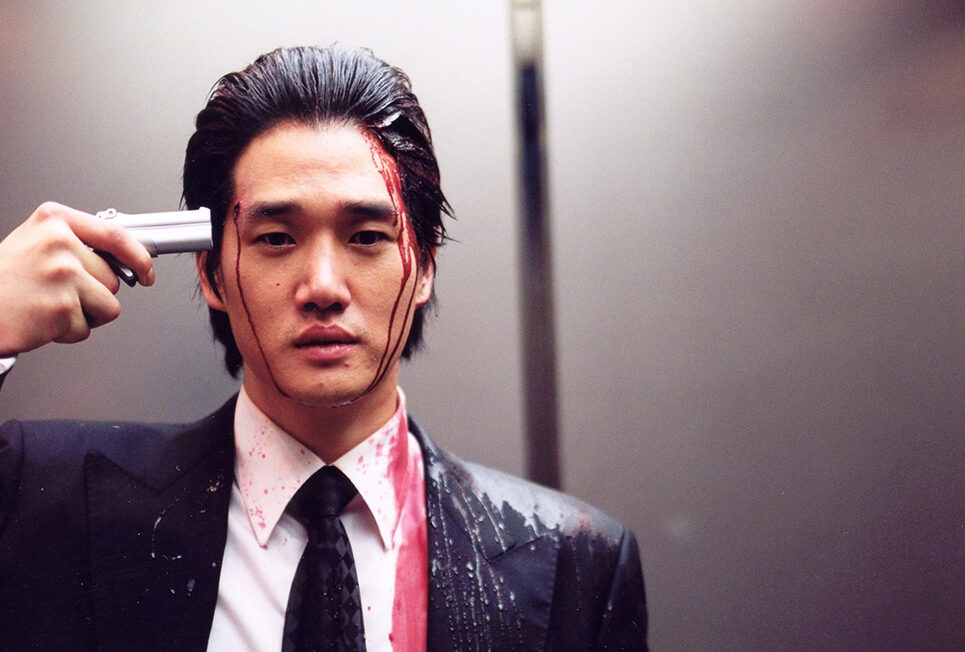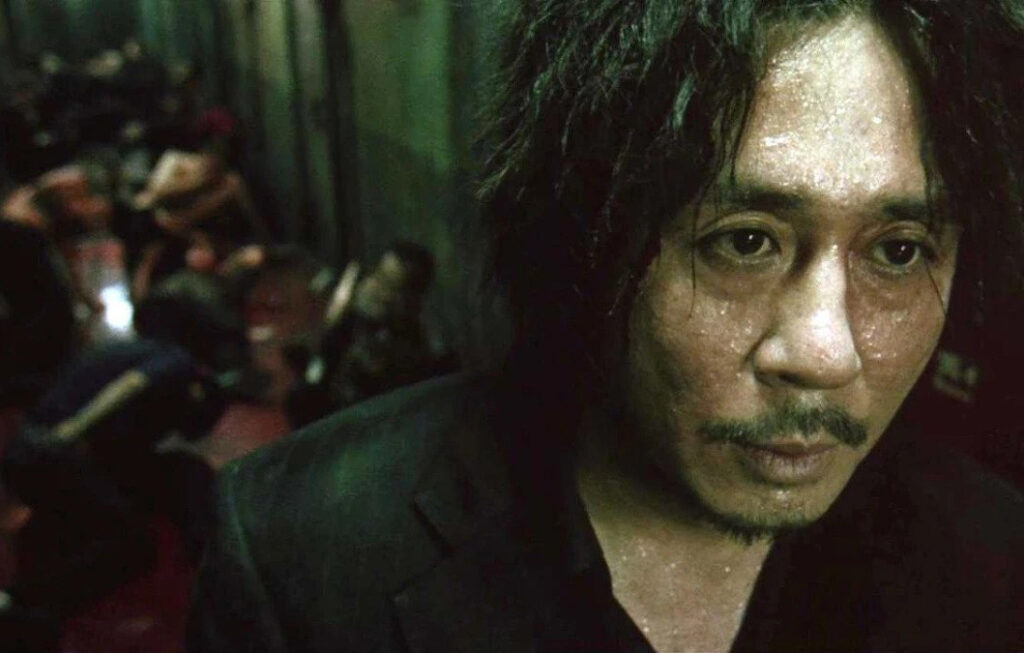Vengeance has been a common theme in pop culture over time. Various artists use this theme of vengeance simply as a genre trope or as a litmus test to examine its profound psychological impact on their characters. Park Chan-wook’s 2003 film “Oldboy” is the story of vengeance having the same motivations around it. It can be read as a revenge drama from the surface; but on deeper exploration, “Oldboy” becomes an unsettling film that dares to put forward the cost of vengeance and the human trauma behind it.
The story of “Oldboy” revolves around Oh Dae-su (Choi Min-sik), a middle-aged businessman who had been kidnapped on a rainy night the day of his daughter’s fourth birthday. He was imprisoned in a room resembling a hotel for 15 years for no apparent reason. He was left with nothing but a TV, and food was delivered from time to time. The TV was the only companion Dae-su had during his imprisonment. It gave him news about the outer world occasionally. From personal tragedies (his wife’s murder and he being the prime suspect) to geopolitical tensions, the TV gave Dae-su every account of what was happening during these 15 years.
Crafting an Intricate Revenge Tale
But the TV was not a mere tool for escaping his boredom during his imprisonment. Instead, it became the guide to ready himself for the ultimate showdown with his captor one day when he got the chance to get out of this confinement. The commitment to vengeance was so boiling within Dae-su at this point that he commented he would chew every piece of his (the captor’s) body.
But before fulfilling his vengeance, the twist in the tale occurred and Dae-su found himself in the throes of a bigger conspiracy. First, he was released without any conditions or demand. Then, his captor asked him to find him and the reason behind his imprisonment for so long. By teaming up with a local sushi chef, Mi-do (Kang Hye-jeong), Dae-su found the missing pieces of the puzzle and joined them. However, this is only to find himself trapped in a giant prison of life and part of a more extensive scheme of vengeance from Woo-jin (Yoo Ji-Tae).
Focusing on the Psychology of Vengeance; ‘Oldboy’ Examined
From beginning to end, Dae-su’s vengeance is the only thing Director Park allowed us to see. Thus, the outburst of violence that comes from Dae-su in the path to achieve his vengeance seems justifiable. But when the mystery unfolds, his revenge becomes meaningless in the end. Dae-su’s vengeance is devoured by Woo-jin and his well-crafted plan. With this well-crafted narrative, Park tries to explore the fickleness of revenge.

Park cleverly makes us believe that Dae-su’s vengeance is justified at first; but Woo-jin’s plans to get his vengeance are also explained. But most importantly, Park’s primary focus is to examine how a deep trauma can transform you into a monster. Both Dae-su and Woo-jin are monsters in “Oldboy.” And their monstrosity brings a nihilistic worldview through the lens of vengeance. As a result, Park’s film doesn’t become a mere revenge drama; it explores the deep ideology behind every step a man can take towards self-destruction in the path of vengeance.
Park Chan-wook Creates a Cult Classic with ‘Oldboy’
“Oldboy” may have the theme of vengeance on the surface, but it isn’t about revenge on a more profound level. Instead, it’s about the origin and after-effect of such raw emotion. And with precise finesse in capturing the raw emotions on the Big Screen, Park Chan-wook creates “Oldboy” as a monster in modern cinema.
Support the Site: Consider becoming a sponsor to unlock exclusive, member-only content and help support The Movie Buff!

